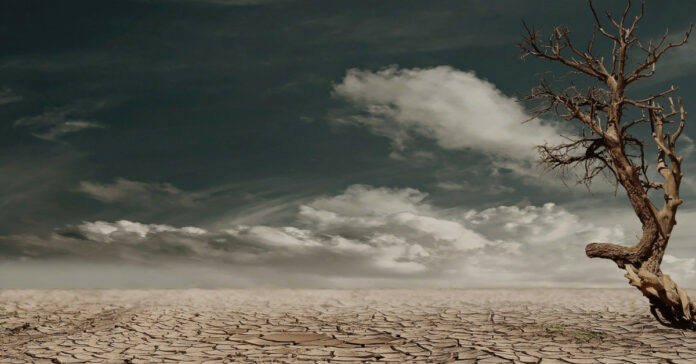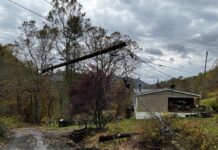
As the megadrought in the western states grows worse and threatens not only farmers and crops but the water supplies of cities the house millions of people, we have to ask: Do water wars lie in our future?
Battles are fought in court as water rights, seniorage, and other terms unfamiliar to Easterners are argued and debated. Who can take how much water from what water sources often goes back a hundred or more years.
In the early 1990s, when I interviewed for a job in Las Vegas and looked at houses, the city was already worried about running out of water. Homeowners ripped out water-hungry lawns and landscaping with desert plants. 30 years later, there are more people in more houses, but less water. That’s not a winning combination.
Drought and Diversion
Some blame global warming for the water shortage, as higher temperatures result in more evaporation. (Have you ever seen it rain, but the rain evaporates before it hits the ground? I have seen this, but only out West in areas with low humidity.) Lower rainfall and snow build up in mountain watersheds is definitely a cause, but whether that directly results from human interference in the climate is unproven. In some cases, lakes and reservoirs were at lower levels during the Great Drought of 1977 or prior to that.
It is clear, however, that mankind is contributing to lower levels by diverting water that would otherwise feed these lakes and reservoirs. The Great Salt Lake has fallen 11 feet since it was discovered 150 years ago, mostly as water from streams and rivers that feed it are diverted and used upstream. Eleven feet may not sound like much, but studies show the lake has lost half the water it once held. It has been lower once, in 1963.
Perhaps the biggest vulnerability is the Colorado River. Some 40 million people depend on water from the Colorado River, including those in Denver, Las Vegas, Tucson, Phoenix, San Diego, and into Mexico. That’s more than 10 percent of the country’s population reliant on a single water source that has lost 20 percent of its water in the past two years.
Deep Wells Getting Deeper
When surface water is not available, farmers, ranchers, and even municipalities drill deep wells, sometimes hundreds or thousands of feet, to tap aquifers below the surface. But this water also runs out and the aquifers may take decades to refill as they depend on natural precipitation. Drilling wells, it appears, is a temporary fix.
I wonder if western cities we will ever have to rely on desalinated ocean water? That might work in San Diego, but Las Vegas is almost 300 miles from the ocean.
I once lived in an area where wells ran dry. I think it was because people built more houses, meaning more wells tapped into the same aquifer, slowly depleting it. They capped the old well and drilled a deeper one. Even with the second well, you could not run a hose for 15 minutes without it turning into a dribble. This meant the static water level in the well was low and the rate at which fresh water refilled the casing it was slower than we consumed it. As a result, you had to be careful to not do too many loads of laundry in a row and forget watering the lawn.
I was happy to sell that house. A well that runs out of water is a liability.
My feeling is that we are just scratching the surface of the country’s water woes. It’s going to get far worse, and stockpiling bottled water isn’t the answer.
Water Rights Vary by State
Water resources are just one of many things peppers and homesteaders have to consider when looking for property. Just make sure you have an adequate supply of water and the legal right to access it. Depending on where you live, you might have the right to drill a well, but not to irrigate with the water. In the west, you could have a stream running through your property but not the right to use it to water your garden. Like mineral rights, water rights can be severed from a property and sold, leaving the landowner, both literally and figuratively, high and dry.
Water rights vary by state, and just because you can legally collect rainwater that falls on your roof in California does not mean you should assume you can do so in another state. Before you buy property, divert surface water, remove a dam or irrigation gate, or drill a well, make sure you know whether the current water permit (if one exists) or water right allows you to do so. You may need to get water board approval before you change anything related to water use.
East vs. West
Where I live, and in much of the country, riparian water rights give the owner of a piece of land through which a stream or river flows the right to use that water. In some western states, this is not the case. Someone downstream who is using the water flow to irrigate their fields or provide water to their livestock may have a senior right to the water that flows through the land upstream. As water levels fall because of drought, they can legally prohibit someone upstream from using the water.
If you move from the East to a Western state, don’t believe the realtor’s reassurances or claims or promises made by the seller. Due your own due diligence and hire a lawyer who specializes in water rights to check the claim for the property before you buy. Water rights can expire if not used and the seller may not actually have the rights he thinks he does.
Water Wars
Fighting a battle over water seems like the stuff of a dystopian nightmare, but it’s a distinct possibility. Wars have been fought over oil. Is water that much of a stretch?
While we require water to drink, for hygiene, and to grow food, there are other uses and needs. Some are environmental, like allowing enough flow in a stream or river for salmon to swim up it and spawn. Manufacturing can also consume large amounts of water, as can brewing and distilling. Cooling and electricity generation also use water. Some of these uses, like hydropower, return water to the source, while others consume it. Most of these are competing with each other.
Whether people, counties, states, or countries actually exchange blows or bullets over water use remains to be seen, but it is clear that as our population grows, natural resources like water are going to be stretched increasingly thin.







